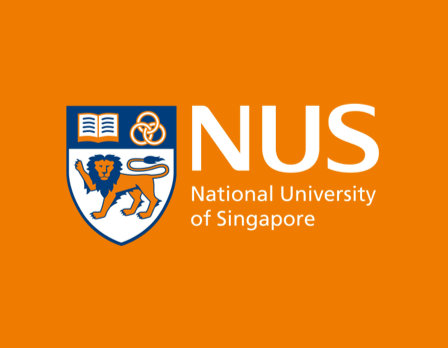Only 25 countries are ready for the future being driven by the Fourth Industrial Revolution. Defined as the blurring of boundaries between the physical, digital and biological worlds, Industry 4.0 has fundamentally transformed the way we live, work and relate to each other.
To benefit from the coming opportunities this will bring, countries need a robust baseline of production, as well as key enablers to transform their production and values creation systems across sectors. According to the World Economic Forum, the leading countries on these fronts include the wealthy and the technologically-advanced, such as the US, UK, Canada, Denmark, China, South Korea and so forth.
Within this list also lies an obvious Southeast Asian tiger economy: Singapore. Whilst Singapore may be a small nation, it has large aspirations for the future of production and services, as well as the corresponding opportunities and challenges that come with Industry 4.0.
A driver of this can be found at 10 Kent Ridge Crescent, Singapore. The National University of Singapore (NUS) is where discerning lifelong learners are nurtured to lead the world’s next developmental chapter.
With the looming climate crisis, new consumer demands and declining natural resources, production sectors are “positioned directly at the nexus of economic impact and resource usage”, as described by the World Economic Forum. The need for leaders who can steer countries and corporations’ transformation, capitalise on the changing nature of production and collaborate across public and private sectors has never been greater.

Shutterstock
NUS’ Master of Science in Industry 4.0 is the exemplary postgraduate degree to give you the technological skills, leadership knowledge and more. Specially developed to support Singapore’s Smart Nation drive, this is a degree that will help you keep pace with the changing nature of industries amid technological disruption, and lead transformation to enhance productivity and new values creation in the workplace.
Raymond Chee is a student in the programme’s inaugural class. He plans to keep his company competitive with the help of things learnt in his Master’s.
The Executive Director of Sealed Air Singapore – the company that invented bubble-wrap – wants to better comprehend the technical landscape of his company.
“I want to understand what more I can do for our customers,” said Chee.
“I dabble in automation and I feel there is a lot more potential to what we can do, like enhancing current solutions by better understanding data and how we can integrate them into our work today.”
With its world-class curriculum and location in one of the world’s most technologically-advanced countries, Raymond can count on achieving this target, as well as gaining an edge for his company in what the World Economic Forum is describing as an epoch that “will be unlike anything humankind has experienced before.”

Shutterstock
NUS is consistently ranked among the world’s top 30 universities and Asia’s top two universities. It takes top spot in Asia and 11th worldwide in the most recent Quacquarelli Symonds (QS) World University Rankings. Times Higher Education ranks NUS second in Asia and 25th worldwide. What all this translates to is global affirmation and testament to the outstanding work conducted by NUS faculty and staff in research and education.
Consider too the curriculum for this Master’s; as an interdisciplinary graduate degree, it taps into the expertise of five NUS academic units in areas pertinent to Industry 4.0: NUS Faculty of Engineering, NUS Faculty of Science, NUS Institute of Systems Science, NUS School of Computing and NUS School of Continuing and Lifelong Education (NUS SCALE). It’s designed in accordance with the Singapore Economic Development Board’s (EDB) Singapore Smart Industry Readiness Index to further aid companies in transforming their capabilities through human capital, supporting Singapore’s efforts to become a Smart Nation.
For this Master’s, administered by NUS SCALE, students undertake four core modules unique to the programme, including Introduction to Industry 4.0 and Applications; Data Analytics for Sense-making; Digital Physical Integration in Industry 4.0; and Digital Infrastructure and Transformation Systems.
The 12-18-month-long programme (or 18-36 months for part-time students) culminates in a final-year Industry Application Project, supervised by relevant NUS academic units. For this capstone project, students work in teams to develop a prototype solution based on a company project, crafting a report about it and presenting it for evaluation at the end of the module.
The Master’s has also been designed to ensure that learning includes both classroom sessions and real-world applications. Pre-class readings, assignments, tests and/or projects, and face-to-face classes are combined with efforts to find real solutions for actual workplaces. This makes for effective and authentic learning to help students acquire the skills every learner needs today, i.e. the ability to apply their newly gained knowledge in future endeavours.
This would bode well for grand ambitions, like one envisioned by Ghaddah Kamal from Saudi Arabia. A student in the inaugural intake of the programme, she is planning to use her MSc to land a place in the Gulf State’s Saudi Vision 2030 transformative roadmap, a blueprint to reduce Saudi Arabia’s dependence on oil and diversify its economy.
As Ghaddah says, “In this course, I’ll be able to come into close contact with new technologies and grasp new concepts stemming from the latest industrial revolution.”
Application for the NUS Master’s of Science in Industry 4.0 August 2020 intake is now open. More information can be found here.
Follow NUS on Facebook and LinkedIn
Liked this? Then you’ll love…
Earth Sciences: Top universities that help us achieve a more sustainable future
Top UK universities that are moulding tomorrow’s computer science trailblazers











